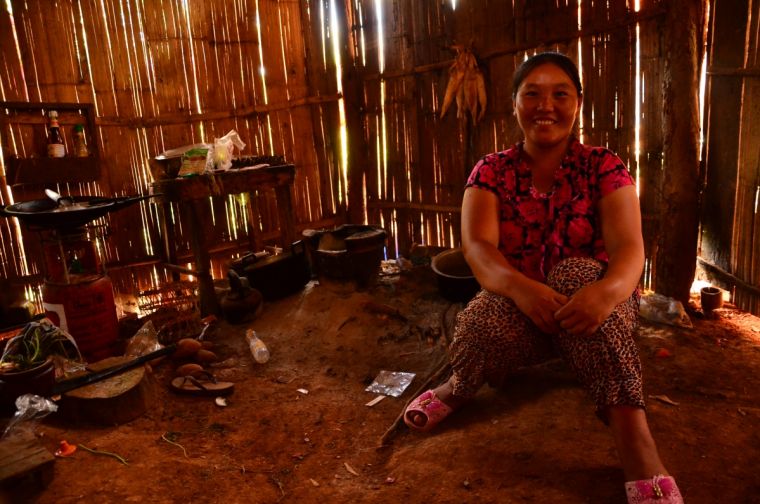Bride kidnapping: a horrific reality for thousands of girls

International child development charity Compassion is working to tackle marriage abduction, or bride kidnapping, through partnerships with the local church across the globe.
Girls as young as 13 are captured against their will and forced to marry, something Compassion says is a common occurrence in parts of the world. They are often subjected to rape with the aim of forcing pregnancy and thus legitimising the union in the eyes of the local community.
Though forced marriages are frequently reported in the press, bride kidnapping is a lesser known phenomenon, despite many communities across the globe seeing it as a traditional custom. In parts of Thailand, particularly among the Hmong community, the practice is common and sometimes even endorsed by parents.
"According to Hmong culture, women are not naturally treated with respect or honour. There is a belief that daughters are just temporary residents, and that they will eventually have to leave their parents to be with their husbands," explains Pastor Wittaya of Ban Nam Sum church, which has been working with Compassion to combat the systematic abuse.
"If they cannot stay in the marriage with their husbands, they are prohibited to return to their parents' homes because there is no place for them."

Compassion is committed to changing the cultural attitudes that make such horrific abuse permissible, working in partnership with local churches and organisations to protect and care for vulnerable girls.
One such example is the Kao Kor Grace Child Development Centre, which works among one of the largest communities of Hmong people in Thailand. It now has over 500 children registered in its safeguarding programme, and has reported huge successes.
At least half of their registered children have been protected from abduction, and around 250 have graduated high school. Thirty have gone to university and 15 have thus far graduated with a bachelor's degree. These statistics indicate an incredible level of care given that teens in the Hmong community usually leave school after ninth grade.
"We may not be able to change the whole culture immediately, but we can start with the mindset of our children," explains project director Mrs Wasana.
"They're learning about their rights in society, what the Bible says about their identity and their freedom to choose their life partners without being subject to the Hmong's traditional practice."
Mrs Wasana and her team have built up a network of connections that give them immediate access to authorities if a case of kidnapping is reported.

"Historically, people in this village are intimidated by some of their tribesmen's power and are afraid to report abuse cases, but these people know that I do not compromise with this kidnapping practice and that we have connections with the local police. So the villagers trust me and secretly inform me about certain incidents because they know that the matters will be dealt with justly," she says.
Despite the difficulties in doing so, Compassion is also tackling the issue at its root, working with church partners to educate the wider community and transform local attitudes. It believes the education of parents is the only way to break the cycle of abuse and "usher in transformation", and it seems to be having a positive effect so far.
"We've been sharing with our village leaders our stand on this issue, building a network with other areas who share our thinking and strictly applying the law in our community," says Pastor Wittaya.
"As a result, we can now see that the bridal abduction practice has gradually decreased. Actually, in city areas, it no longer exists."
Compassion is asking for greater financial and prayerful support surrounding this issue, particularly in the lead up to International Women's day on March 8.











